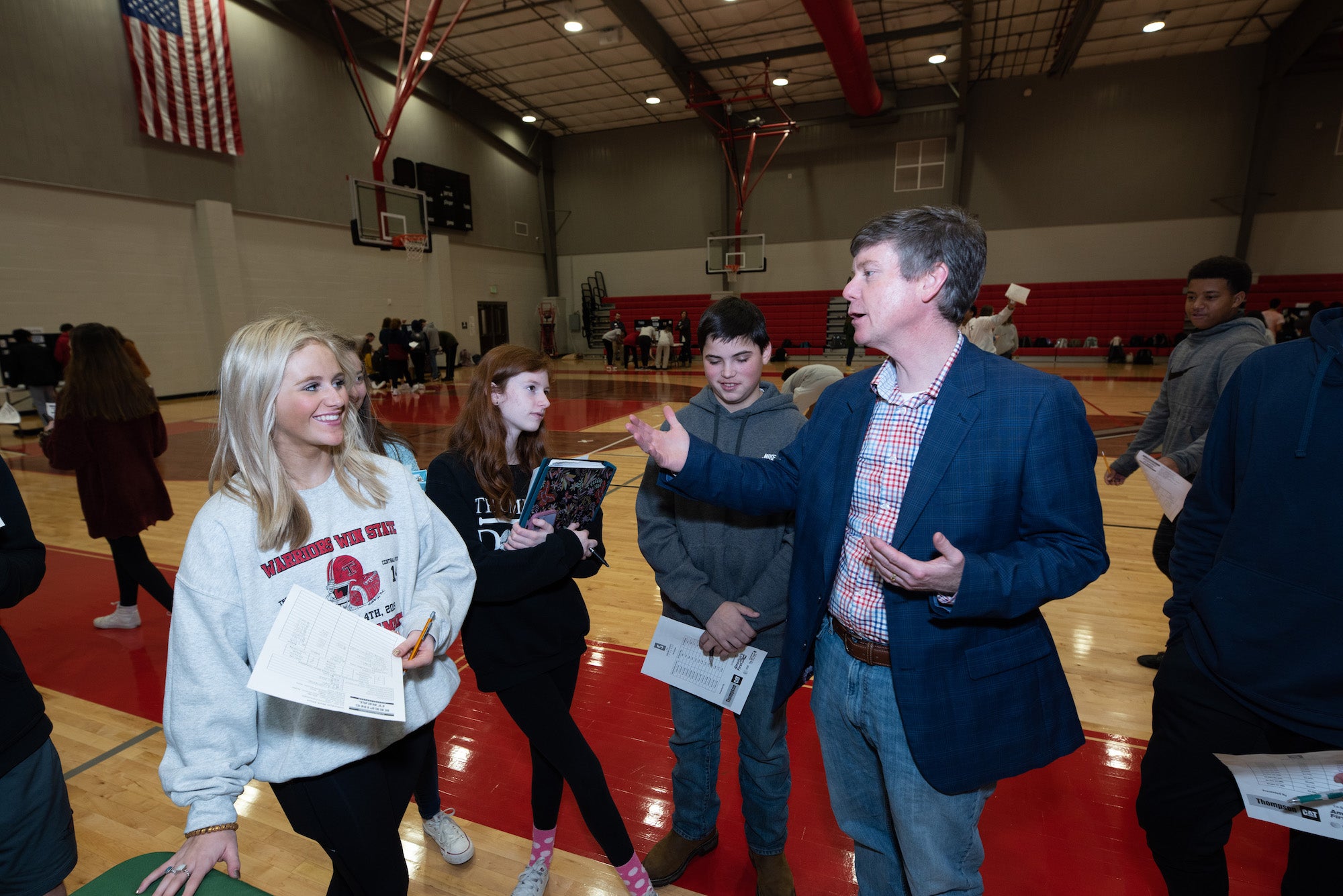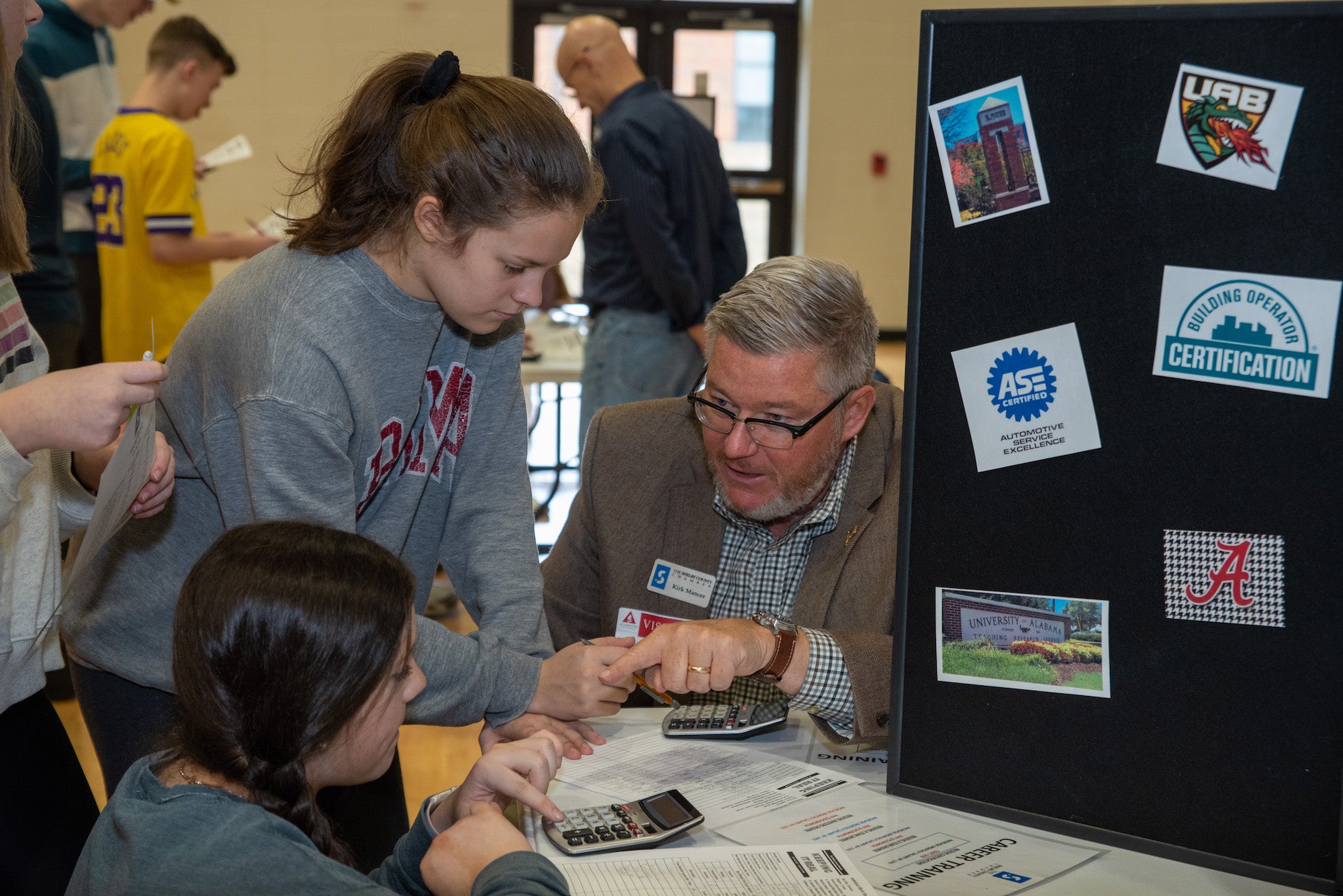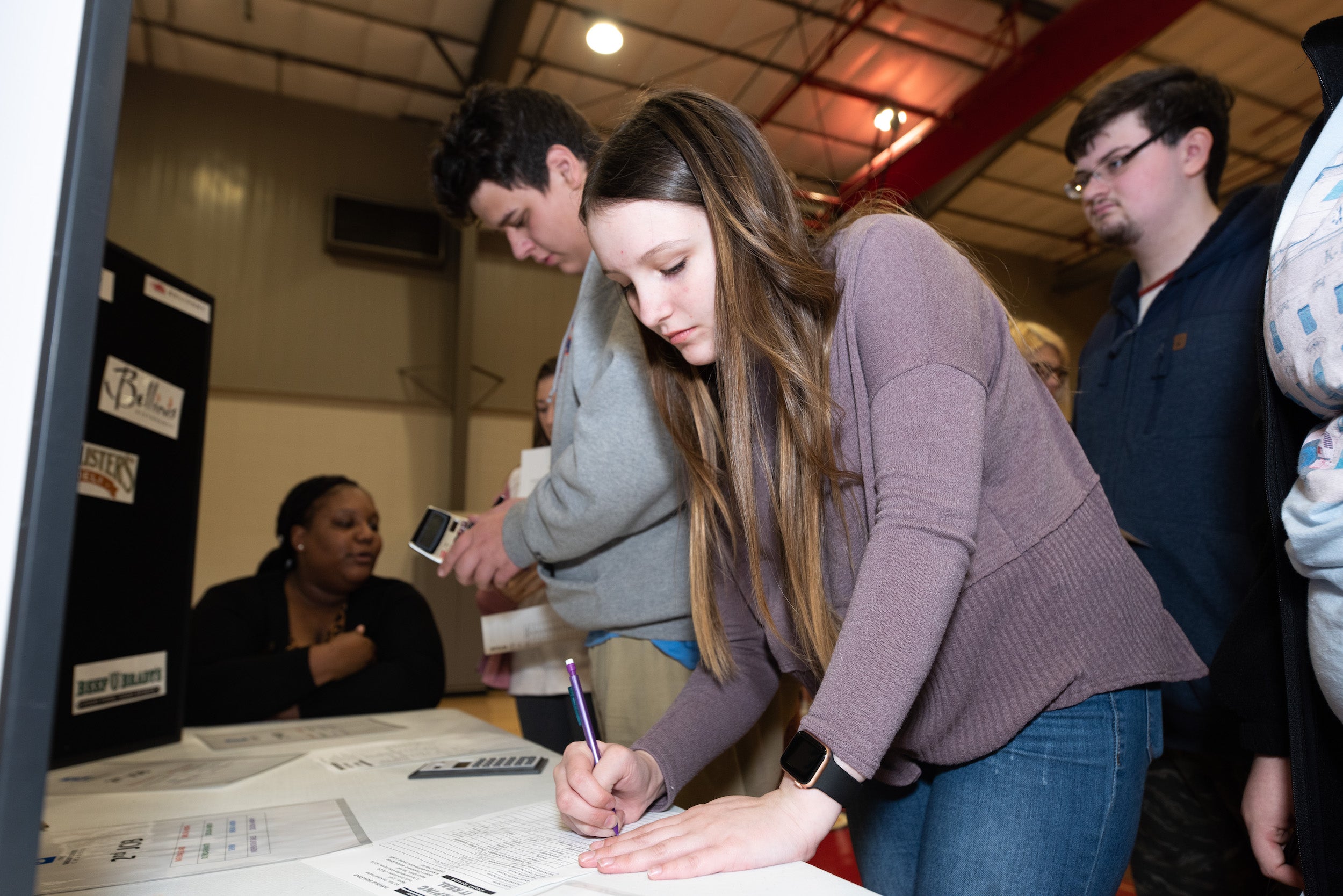Keeping It Real teaches THS students financial literacy
Published 4:54 pm Friday, January 24, 2020
ALABASTER – More than 500 Thompson High School freshmen got a small glimpse of what’s it’s like to pay bills and manage finances on Friday, Jan. 24, during Keeping It Real, a two-day program offered by The Shelby County Chamber that’s designed to teach students financial literacy.
Using actual Shelby County incomes and careers, students went from station to station selecting housing, utilities, transportation, insurance and childcare based on their monthly income. Students also had to budget for groceries and had the option of purchasing a cell phone, cable and Internet. Nearly a dozen Shelby County business professionals manned the stations and helped the kids figure out the best options for their situation.
On day-one, Pari Barzegari, the Chamber’s manager of community and career development, visited the freshmen in their classrooms to explain the program and assign careers and lifestyles to each student. The second day was the interactive part of the program.
Barzegari said a common mistake students make involves investing in expensive cars or cars that don’t fit their lifestyle.
“They might buy a two-seater sports car, but their worksheet says that they have one kid, so where are you going to put a car seat?” Barzegari said. “A lot of the students end up having to go back and get a different vehicle.”
The goal is for students to have money left over after they’ve paid all of their bills. To earn more money, students are allowed to get a second job or go back to school to further their education or earn a certification.
THS career coach Niva Roberson said the exercise gives students a taste of what’s to come. It also gets them to start thinking about possible careers paths and educates them about the salaries associated with those jobs.
“The reality of it is that your career path determines how much money you have potential to make,” Roberson said. “With this assignment, they get to research the careers they’re interested in and they can see if it aligns with what they want out of life.”
Educating students about possible career paths is something that starts in elementary school and continues through to high school, Roberson said. Career development is also woven into the curriculum for core classes.
Jacoby Shade, a 15-year-old interested in pursuing a career in engineering, said the assignment gave him a new perspective.
“When my parents tell me that I can’t get some of the things I want, now I understand why,” he said. “I can see how much money I take up.”
Shade’s worksheet stated that he was the father of one child and earned $45,780 annually as a teacher, but his spouse earned $240,000 annually. After paying his monthly bills, he was left with $836.
“It really makes you think about your career choices,” he said.
Roberson said the program highlights how students can benefit when the community collaborates with the school system. She thanked the local professionals who volunteered their time to make the event a success.












